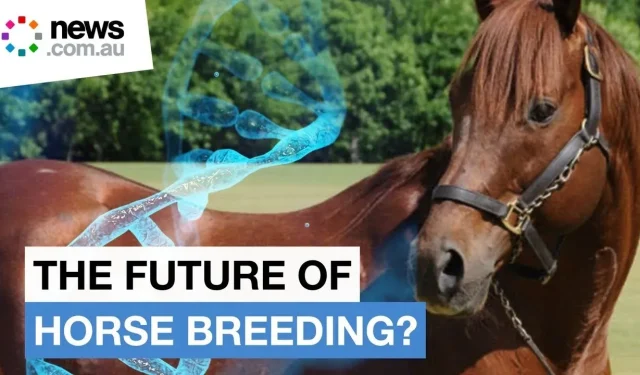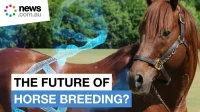In a groundbreaking development for both the equine world and biotechnology, Argentine scientists at Kheiron have successfully bred the world’s first genetically-edited polo horses. Utilizing cutting-edge CRISPR-Cas9 technology, the researchers aim to enhance the performance of polo horses while maintaining the esteemed characteristics of the breed. This article delves into the implications of this advancement, exploring the underlying science and ethical considerations surrounding genetic editing in animals.
The Science Behind Genetic Editing in Horses
At the heart of this innovation is the CRISPR-Cas9 technology, a powerful method for altering the genetic code of organisms. The Kheiron team derived genes from Polo Pureza, an award-winning mare known for her exceptional capabilities on the field. By meticulously editing these genes, they produced five genetically-optimized foals born late last year, each engineered to showcase increased speed—an essential attribute for winning polo matches.
The scientists’ approach adheres strictly to Argentina’s regulatory framework, ensuring that the bred horses do not fall under the classifications of genetic doping or genetically-modified organisms (GMOs). This compliance not only legitimizes their efforts within the sport but also positions Argentina as a leading player in the fusion of science and equine athleticism.
Broader Implications of Genetic Engineering in Biotechnology
The work done by Kheiron extends well beyond the polo field. The team is exploring further applications of their genetic editing technologies, including ambitious plans to modify pigs for organ compatibility with humans—potentially addressing the critical shortages in transplantable organs. The implications of this research could revolutionize medical science and livestock breeding, showcasing how biotechnology can intertwine with everyday challenges.
Despite the promising benefits, the rise of genetic editing in animals raises crucial ethical questions, particularly concerning animal welfare and ecological balance. As we move deeper into an age of genetic modification, it is imperative for society to engage in discourse regarding the moral considerations of playing ‘God’ with nature.
Argentina’s Position in the Global Biotechnology Landscape
Through initiatives like those at Kheiron, Argentina is positioning itself as a pioneer in the world of biotechnology. By fostering innovation in genetic editing, the nation not only aims to enhance its agricultural and sporting prowess but also strives to take a leading role in global discussions around genetics and ethics. This unique focus on developing equine athletes indicates a cultural respect for both tradition and innovation.
The successful breeding of genetically-edited polo horses could set a precedent for other nations and industries to explore similar avenues. As science and technology continue to evolve, the competitive edge gained through genetic innovation could redefine traditional sports and farming practices around the world.
Conclusion
The emergence of genetically-edited polo horses symbolizes a significant leap forward in the intersection of traditional sports and modern science. As Kheiron pushes the envelope in biotechnology, they evoke a crucial conversation about the future of genetic editing in animals. Will society embrace these advancements as a means to benefit both sport and health, or will the ethical implications prove to be a barrier to progress? The dialogue is just beginning, and the world watches closely.
https://www.youtube.com/watch?v=u-gVCiMsQj0


